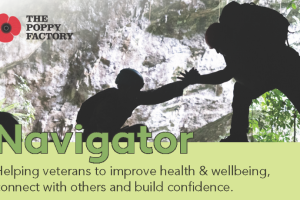A PLAN to priorities new technology by offering more services online won’t mean an end to face-to-face and telephone help, councillors have been told.
Torfaen County Council’s cabinet has approved the authority’s first digital first customer strategy which is intended to make more council services available online and make better use of technology including data the council collects.
The intention is that better online services will encourage take up among those able to use them, with more support for those willing but unable to access the internet so the council can “more easily and conveniently” help those “who really need to access support over the phone or face-to-face”.
Councillor Peter Jones, the cabinet member for corporate governance and performance, said: “A key point is digital first does not mean digital only”.
A report that went before the Labour cabinet at its Tuesday, May 9 meeting at the Civic Centre in Pontypool said making better use of technology will also allow it to help those unable to get online.
But it also highlighted a possible risk of services being disrupted if the council is unable to obtain laptops and desktop computers, suitable for business use, due to a national shortage.
Services will still be offered to people who do not want to use the internet but help concentrated on those who find it difficult to do so.
The strategy will have “a focus on prioritising support for more complex cases and more vulnerable customers.”
The council’s head of customer, digital and ICT services James Vale told the cabinet the “more vulnerable will be supported more quickly and easily than perhaps we can at the moment.”
The strategy has three “core ambitions” which are excellent and efficient services with data collected used to measure the needs of customers – which are all those who interact with the council; increasing the ability of council staff and customers to use digital technology and the innovative use of new technology.
Mr Vale said there is already an ongoing review of the council’s website to meet its ambition of “excellent and efficient” services and the library service is able to loan people items such as laptops to meet the aim of boosting people’s ability to use new technology.
A consultation on the strategy included a seminar for all councillors, meetings with town and community councils, the Blaenavon, Cwmbran and Pontypool 50+ Forums, a citizen’s panel, the Torfaen Access Forum and public drop in sessions.
The Torfaen Access Forum was also consulted, which Cllr Jones said was “very important”, and there were 79 responses to an online survey.
The report said “a consistent point made (was) the need to support those who can’t go online” and it also described all consultees as “generally supportive of the digital first principle and prioritisation of more complex cases and support of more vulnerable people via traditional telephony and face to face channels”.
Mr Vale said following the survey it is “apparent more needs to be done to raise awareness of the support already available” to use technology.
Councillor Sue Morgan said “we know nothing will replace the expertise of our officers” but asked what sort of time savings would be made as a result of better use of technology. Mr Vale said the Pontnewydd, Cwmbran councillor had “hit the nail on the head”.
He said “it will release staff to focus more on service delivery, the stuff that matters to residents” and that work is ongoing to see how it will reduce administrative tasks. He said the strategy also covers how the council can make use of AI technology, which is intended to carry out jobs traditionally done by people, and machine learning.
Cllr Jones said the council receives 146,000 service reports every year and needs to take advantage of new technology to help respond to them.
The report said the consultation showed 84.6 per cent of respondents to the online survey either strongly agreed (44.9 per cent) or agreed (39.7 per cent) with the approach of prioritising digital services and support for the more vulnerable.
The strategy will be reviewed in three years.



















